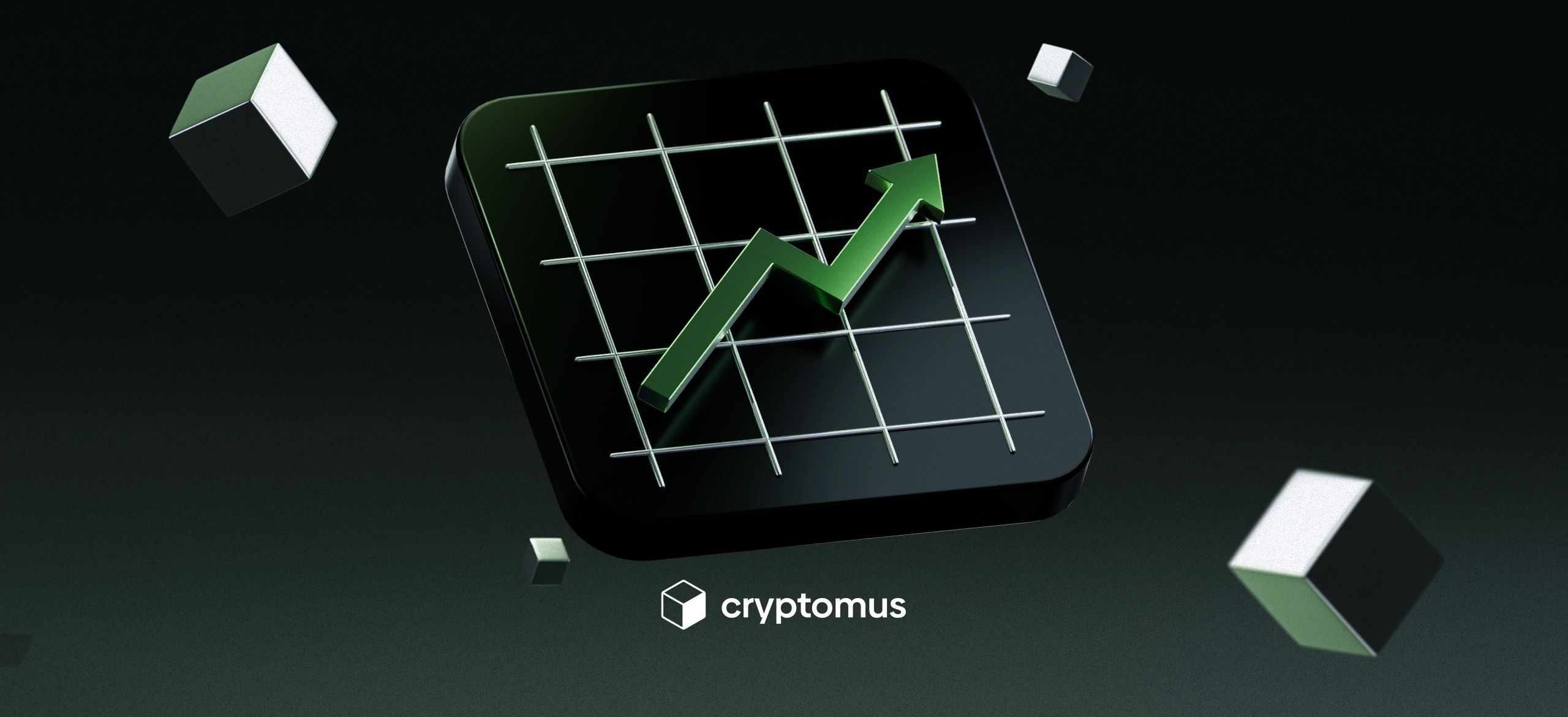
SEC พิจารณา Staking ETF อีเธอเรียม หลังจากการหารือกับ BlackRock
สารบัญ
เมื่อวันที่ 9 พฤษภาคม 2025 BlackRock ได้จัดการประชุมส่วนตัวกับหน่วยงาน Crypto Task Force ของคณะกรรมการกำกับหลักทรัพย์และตลาดหลักทรัพย์สหรัฐฯ (SEC) ซึ่งอาจมีผลต่ออนาคตของการลงทุนคริปโต ปกติแล้วการประชุมแบบนี้จะค่อนข้างเงียบ แต่ครั้งนี้กลับโดดเด่น ประเด็นที่ถูกหยิบยกขึ้นมามีทั้ง staking ใน ETF หลักทรัพย์ที่ถูกโทเคนไนซ์ และการปรับปรุงกฎระเบียบสำหรับสินทรัพย์ดิจิทัล แสดงให้เห็นถึงความเชื่อมโยงที่แน่นแฟ้นยิ่งขึ้นระหว่างการเงินแบบดั้งเดิมและบล็อกเชน
จุดสนใจหลักอยู่ที่ อีเธอเรียม (Ethereum) โดยเฉพาะอย่างยิ่งวิธีการนำกลไก Proof-of-Stake มาผนวกเข้ากับผลิตภัณฑ์การลงทุนที่อยู่ภายใต้กฎระเบียบ BlackRock ซึ่งเป็นที่รู้จักจาก iShares Bitcoin Trust (IBIT) กำลังผลักดัน ETF คริปโตที่มีฟังก์ชัน staking นี่ถือเป็นการเปลี่ยนแปลงครั้งใหญ่จากโมเดล ETF แบบพาสซีฟทั่วไป และอาจเปิดทางให้นักลงทุนกระแสหลักได้รับผลตอบแทนจากบล็อกเชน
Staking อาจเปลี่ยน ETF อีเธอเรียมได้อย่างไร?
Staking คือวิธีการช่วยรักษาความปลอดภัยของบล็อกเชนแบบ Proof-of-Stake เช่น อีเธอเรียม ผู้ใช้ทำการล็อก ETH และรับรางวัล ซึ่งคล้ายกับเงินปันผลในระบบการเงินดั้งเดิม จนถึงตอนนี้ ส่วนใหญ่สิ่งนี้มีให้เฉพาะผู้ที่ถือ ETH โดยตรงหรือสถาบันที่ใช้ validator บุคคลที่สาม แต่ BlackRock ต้องการเปลี่ยนสิ่งนี้
ในการประชุมล่าสุด BlackRock ได้นำเสนอแผนการรวม staking เข้ากับ ETF ตาม บันทึกของ SEC BlackRock ได้สรุป “การพิจารณาสำหรับ ETP ที่มีความสามารถในการ staking” ซึ่งบ่งชี้ว่าพวกเขาอาจผลักดันให้มีการเปลี่ยนแปลงโครงสร้างกองทุนตามกฎหมายปี 1940 เพื่อรองรับสินทรัพย์ที่ถูก stake หากได้รับการอนุมัติ สิ่งนี้อาจเปลี่ยน ETF อีเธอเรียมจากตัวติดตามพาสซีฟไปสู่การลงทุนที่สร้างรายได้
แต่ก็มีความท้าทาย Staking ทำให้เกิดคำถามเกี่ยวกับผู้ดูแลทรัพย์สิน การเก็บภาษีรางวัล และว่ารางวัลเหล่านั้นอาจถูกมองว่าเป็นหลักทรัพย์หรือไม่ SEC รายงานว่ากำลังตรวจสอบอย่างใกล้ชิด นั่นเป็นเหตุผลว่าทำไมการประชุมนี้จึงไม่ใช่แค่การนำเสนอ แต่เป็นก้าวสำคัญในการสร้างกรอบกฎระเบียบ
Robert Mitchnick หัวหน้าแผนกสินทรัพย์ดิจิทัลของ BlackRock ชี้ให้เห็นว่า ETF อีเธอเรียมที่ไม่มี staking อาจแข่งขันได้ยากเมื่อเทียบกับการถือ ETH โดยตรง หาก staking กลายเป็นส่วนหนึ่งของการออกแบบ ETF สิ่งนี้อาจเปลี่ยนวิธีการตัดสินใจของนักลงทุนทั้งรายย่อยและสถาบัน จากการเลือกเพื่อความสะดวก ไปสู่การเลือกเพื่อผลตอบแทน
การโทเคนไนซ์และเส้นทางสู่กฎเกณฑ์ที่ชัดเจน
แม้ staking จะได้รับความสนใจ แต่ข้อเสนอของ BlackRock ก็กว้างกว่านั้น บริษัทได้หารือเกี่ยวกับการโทเคนไนซ์—การเปลี่ยนสินทรัพย์เช่นพันธบัตรรัฐบาลสหรัฐให้เป็นเครื่องมือทางการเงินบนบล็อกเชน สิ่งนี้เกิดขึ้นแล้ว ตัวอย่างเช่น BlackRock USD Institutional Digital Liquidity Fund (BUIDL) ซึ่งทำงานบนอีเธอเรียมและถือครองพันธบัตรรัฐบาลสหรัฐที่ถูกโทเคนไนซ์
สำหรับ BlackRock การโทเคนไนซ์ไม่ใช่เรื่องการเก็งกำไรคริปโต แต่เป็นเรื่องของการปรับปรุงโครงสร้างพื้นฐานหลักของระบบการเงิน—การชำระเงินที่รวดเร็วขึ้น ความชัดเจนของการถือครอง และการตรวจสอบแบบเรียลไทม์
แต่ก็ยังมีคำถามทางกฎหมาย BlackRock ถามว่ากฎหมายปัจจุบัน เช่น กฎหมายปี 1933 และ 1940 จะสามารถรองรับการเปลี่ยนแปลงนี้ได้โดยไม่ต้องแก้ไขครั้งใหญ่หรือไม่ ตามบันทึกของ SEC หน่วยงานกำกับดูแลเปิดรับการตีความกฎหมายที่มีอยู่เพื่อทำให้สิ่งนี้เป็นไปได้ ตราบใดที่ยังคงมีการปกป้องนักลงทุน
สิ่งนี้บ่งชี้ถึงเป้าหมายที่ใหญ่กว่า: ไม่เพียงแต่ ETF ที่มี staking แต่เป็นระบบการเงินที่ดำเนินการบนบล็อกเชนบางส่วน ในขณะที่ยังอยู่ภายใต้การกำกับดูแล
การเปลี่ยนโทนที่ SEC
หนึ่งในข้อสรุปที่สำคัญจากการประชุมคือการเปลี่ยนแปลงโทนของ SEC ภายใต้การนำของ Gary Gensler อดีตประธาน หน่วยงานนี้เคยมีท่าทีเข้มงวดต่อคริปโต มักจะดำเนินการโดยไม่มีกรอบที่ชัดเจน หลายคดีปัจจุบันหยุดชะงักหรือถูกยกเลิก แต่ปัจจุบันผู้นำ SEC เช่น Peirce และ Atkins เปิดกว้างมากขึ้นในการทำงานร่วมกับอุตสาหกรรม
Peirce สนับสนุนกรอบการทำงานที่ส่งเสริมการสร้างสรรค์นวัตกรรมในขณะเดียวกันก็คุ้มครองนักลงทุนมาโดยตลอด Atkins ผู้สนับสนุนสินทรัพย์ดิจิทัลที่อยู่ภายใต้กฎเกณฑ์ที่ดี เพิ่งกล่าวว่าเขาเห็น “ประโยชน์มหาศาล” จากการรวม tokenization และ staking เข้ากับการเงินกระแสหลักอย่างมีความรับผิดชอบ
ข้อเสนอของ BlackRock กล้าได้กล้าเสีย แต่ตั้งอยู่บนพื้นฐานของกฎหมายและความเป็นจริงของตลาด พวกเขาแสดงให้เห็นว่าอุตสาหกรรมการเงินในตอนนี้มองบล็อกเชนไม่ใช่เพียงแค่การทดลอง แต่เป็นรากฐานของอนาคต ด้วยการสนับสนุนที่เพิ่มขึ้นจากทั้งหน่วยงานกำกับดูแลและสถาบัน ETF อีเธอเรียมที่มี staking อาจกลายเป็นจริงในเร็ว ๆ นี้
การประชุมนี้หมายความว่าอย่างไรสำหรับ ETF อีเธอเรียม?
แม้ว่า SEC ยังไม่ได้ตัดสินใจขั้นสุดท้ายเกี่ยวกับ staking ใน ETF แต่ก็ชัดเจนว่ามีความก้าวหน้า การเข้ามามีบทบาทของ BlackRock เพิ่มความน่าเชื่อถือให้กับการสนทนา และแสดงให้เห็นว่าการนำมาใช้ในวงกว้างอาจเกิดขึ้นตามมา หากกฎระเบียบถูกทำให้ชัดเจน
หากได้รับการอนุมัติ Staking ETF อีเธอเรียมอาจกลายเป็นจุดเปลี่ยน—ไม่เพียงแต่สำหรับผลิตภัณฑ์คริปโต แต่ยังรวมถึงวิธีที่การเงินแบบดั้งเดิมตอบสนองต่อการสร้างสรรค์แบบกระจายศูนย์ อนาคตจะขึ้นอยู่กับความเร็วของการเปลี่ยนแปลงกฎเกณฑ์ แต่ด้วย BlackRock ที่ผลักดันวาระนี้และ SEC ที่มีส่วนร่วมมากขึ้น เส้นทางข้างหน้าดูมีความเป็นไปได้สูงขึ้น
ทำให้การเดินทางสู่ Crypto ของคุณง่ายขึ้น
อยากเก็บ ส่ง รับ เดิมพัน หรือซื้อขายคริปโทเคอร์เรนซีใช่ไหม? Cryptomus ทำได้ทุกอย่าง — สมัครและจัดการกองทุนคริปโทเคอร์เรนซีของคุณด้วยเครื่องมืออันแสนสะดวกของเรา
เริ่มต้นใช้งาน



